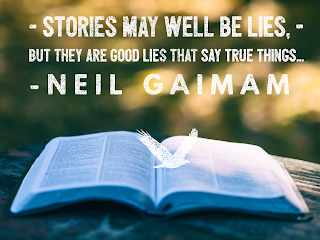Gay Yellen: Weeding and Wording
Just found out that today is National Weed Your Garden Day, which couldn’t be more appropriate for me at the moment, though instead of culling crabgrass, I’m weeding out words.

vecteezy.com
The most common offenders I’ve dug up so far are: just, seemed, felt, but, winced, smiled, and a few other crutches a writer too often leans on.
The good news is that this exercise signals my last round of self-editing for The Body in the News, Book 3 in my Samantha Newman Mystery Series. Once this task is completed, I’ll be sending the manuscript to my publisher.
The bad news is, I’ve been so focused on finishing the new book that I completely forgot to plan a subject for this, my monthly Stiletto Gang post. So, in honor of this “national” day, let’s talk about weeds… oops, I meant words.
I was surprised when a friend commented that she thought I consciously chose to use more common language in my books than I use in my natural speech. Well, yes, and no. The characters in my books are not me, and even though I write their dialogue, the way they express themselves is their own.
 When the writing is going well, I’m listening to Samantha and Carter and their supporting cast as they dictate their words to me. Older people use different words than younger adults and children do. Sticklers for facts, such as my detective, Buron Washington, are more clipped and precise when they speak. And so on, down to a new character whose vocabulary is unique unto itself.
When the writing is going well, I’m listening to Samantha and Carter and their supporting cast as they dictate their words to me. Older people use different words than younger adults and children do. Sticklers for facts, such as my detective, Buron Washington, are more clipped and precise when they speak. And so on, down to a new character whose vocabulary is unique unto itself.
However, the weeds in this manuscript are entirely my fault, and I must get back to yanking them out, one by one. But before I go, here’s a question:
Does the way a person speaks reveal something unique about their mood or character? How so?
Gay Yellen writes the award-winning Samantha Newman Mysteries including The Body Business, The Body Next Door, and out later this summer, The Body in the News.










Gay, absolutely! The way a character speaks tells us so much about that character. Each character in a book should have a unique voice because each character in a book is a unique person.
And that includes the Shakespeare-quothing parrot in your hilarious books, Lois.
Ralph thanks you for the shout-out, Gay!
The biggest clue to a character is voice, in real life and in fiction. The character’s diction can tell us practically everything we need to know about his native language, geographic background, education level, age, socioeconomic level, comfort level, attitude, self-control, and on and on. You’ve hit the nail on the head about the importance of words.
Thanks, Saralyn.
Oh, absolutely a character’s manner of speaking gives us a lot of clues as to personality and intentions. It also provides information about a character’s country of origin or region. There are so many wrinkles of personality that can be portrayed though voice, such as temperament, mental state, etc. that as writers, we should use voice in each of our characters! Thanks for a thought provoking blog post.
Thank you, Kathryn.
Definitely — personality, nationality, education, etc., but as writers, it is hard to distinguish our thoughts and styles into the different voices. So, besides weeding out words, we need to weed out our ingrained styles (like I need to remember, not all of my characters are analytical or speak in lawyer gobbledygook.
Ha! There’s always that problem of getting ourselves out of the way so our characters can speak for themselves.
Absolutely, characters should have identifiable traits and speech is important. I try to pull five weeds a day, Gay! Now I wonder if I should delete five problem words 😉
Donnell, the editor of my first book made a list of words I tended to overuse and told me to clean up my act. I was appalled at how many times I’d used certain words. Lesson learned, so now I try to weed on a regular basis.
The way a character speaks can definitely reveal something about them. I don’t know that it always does, but it can. Some people are more a chameleon with their speech than others.
Being a chameleon is an interesting trait for a character, Mark. Hmm… I’m thinking of a writer who does that well. Hank Phillippi Ryan, perhaps?
When it comes to character, words matter. The way people talk tells the reader so much!
Agreed, Lynn!